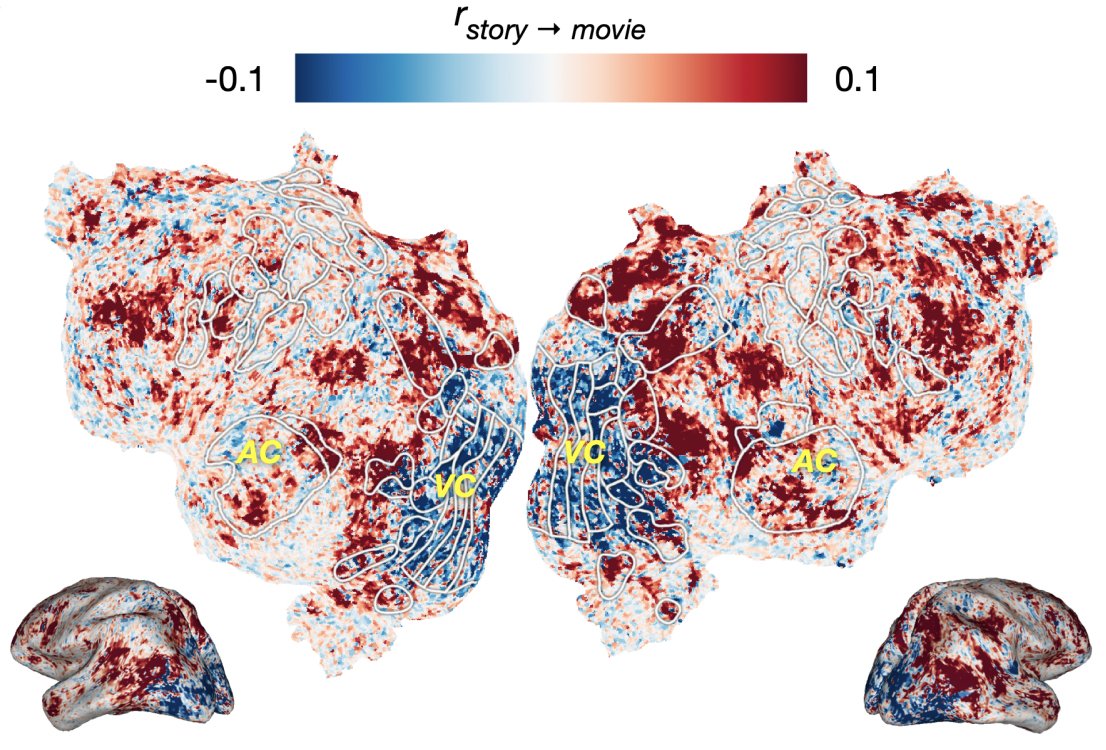
Jerry Tang
@jerryptang
Followers
1K
Following
9
Media
7
Statuses
32
phd student @HuthLab interested in language and brain-computer interfaces
Austin, TX
Joined May 2021
RT @cathychen23: How does the human brain represent semantic information from different languages?. Our new preprint suggests that bilingua….
0
86
0
RT @cathychen23: Do brain representations of language depend on whether the inputs are pixels or sounds?. Our @CommsBio paper studies this….
0
39
0
I’ll be presenting this work at the #NeurIPS2023 5pm poster session on Wednesday — come by to chat about the relationship between language and vision in the brain!.
Multimodal transformers make it possible to transfer fMRI encoding models between language and vision! (though mostly from L->V and not V->L 🤔) New paper from @jerryptang @_du_meng @vvobot @vasudev_lal
2
8
66
RT @AmandaLeBel3: This paper and dataset is now officially published in Scientific Data!! And not only that but we have nearly doubled the….
0
9
0
RT @WillettNeuro: Our new study is out today in Nature! We demonstrate a brain-computer interface that turns speech-related neural activity….
0
223
0
RT @KayloLittlejohn: Our paper on a high-performance neuroprosthesis for speech decoding and avatar control is out in Nature! Thankful to w….
0
29
0
RT @shaileeejain: 🌟NEW PREPRINT🌟.🤖-based🧠models are all the rage!. But,.- How do we interpret 🧠if 🤖are SO un-interpretable?.- How do we _te….
0
13
0
Our language decoding paper (@AmandaLeBel3 @shaileeejain @alex_ander) is out! We found that it is possible to use functional MRI scans to predict the words that a user was hearing or imagining when the scans were collected
15
79
218
decoding performance fell to unintelligble levels when subjects performed simple mental tasks while staying still. motion should further lower performance. this could also change, so we are staying vigilant and working to test other resistance tasks (5/9)
finally, we tested whether our decoder respects user privacy, and found that subject cooperation is currently required to train and to run the decoder. for instance, we developed a set of covert resistance strategies that substantially lowered decoding performance (6/7)
2
0
9
@AmandaLeBel3 posted a great thread about the privacy sections in our paper, and i'd like to further unpack some of those ideas (2/9)
I am sure most of you have seen @jerryptang 's thread on our new paper on non-invasive brain decoding. It's clear that this a big development and could be useful for many people. But I wanted to highlight what my favorite thing in this paper is!.
1
0
10





